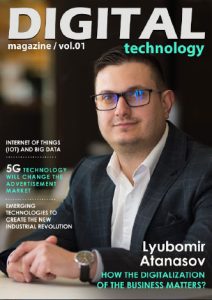Graduated from The Maurice Thorez Institute of Foreign Languages, Moscow, Russia.
Over 6 years of teaching/tutoring experience
At the moment – Head of Marketing & PR at PATENTUS law firm
Author of the book Language as a game for Mann, Ivanov and Ferber (MIF) publishing house
Speaker, blogger, podcast guest, co-founder of www.useyourenglishmoscow.ru language
immersion project, mom of a bilingual kid.
As we speak about the future of education, the only way it responds to the demands of progressive reality is the case when it teaches students investigate, prototype, fail and try again showing that each iteration may lead to better ideas. This experience boosts creative confidence in kids helping them realize that they can be contributors no matter what their age is.
Technology plays a central role in this process offering all types of gadgets and programs aimed at innovative approach to educational routine.
Technology may be integrated in educational curriculum without much harm to traditional learning since they have same goals and objectives. Not surprisingly, that to reach these goals we are picking a slightly different way – allowing students be co-creators instead of just passive listeners but in the end, it will be beneficial for the teaching and learning in general.
Given that 69% of today’s children will end up working in jobs that don’t yet exist it’s crucial to encourage kids become life-long learners and adopt design thinking approach.
As a teacher and as a teacher who used to be quite skeptical about using technologies in a classroom, I should say that I’ve changed my mind and realized that there’s a huge potential and it has always been there. And the potential is not about the technology itself, it’s about the learning environment that the technology enables, it’s about to empower teachers, children and parents with real-time data and real-time excess to information. So that you can personalize learning in a way that’s never been possible before.
Speaking about technologies in the classroom, I can see great potential in global usage of the Cloud for storage of learning materials, 3-d printing implemented in chemistry, biology and geometry lessons. And of course, virtual classrooms – current global quarantine caused by Covid-19 proved that being able to efficiently communicate via Skype or Zoom is the key to unconditional learning when nothing can get in the way. One of my friends, a British citizen, who for many years lived and worked as a teacher in China, had to go back to the UK because of the virus restrictions, successfully continued giving lessons to his Chinese students online without any harm to the engagement level and overall progress.
Technologies do not harm creativity as it thought to be – it encourages creativity and boosts it to the next level.
Svetlana Lashuk
https://www.instagram.com/la_la_lashuk/
https://www.mann-ivanov-ferber.ru/books/yazyk-kak-igra/ – my book



